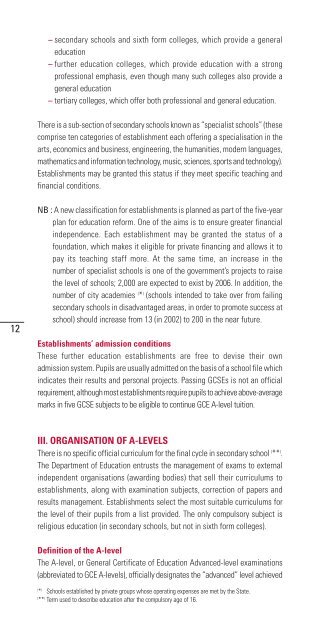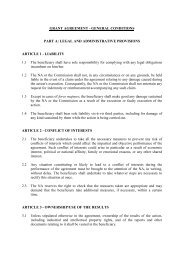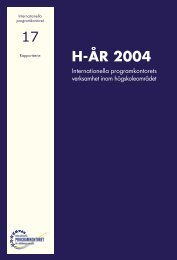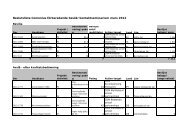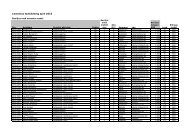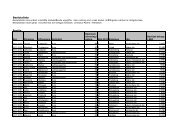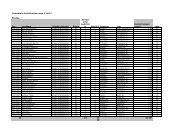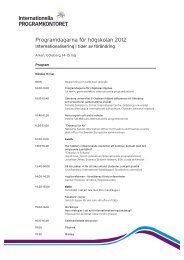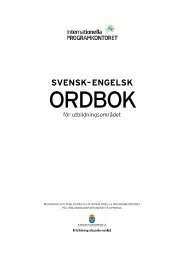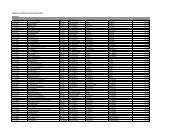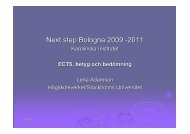Baccalauréat, A-levels, Abitur, Bachillerato
Baccalauréat, A-levels, Abitur, Bachillerato
Baccalauréat, A-levels, Abitur, Bachillerato
You also want an ePaper? Increase the reach of your titles
YUMPU automatically turns print PDFs into web optimized ePapers that Google loves.
– secondary schools and sixth form colleges, which provide a general<br />
education<br />
– further education colleges, which provide education with a strong<br />
professional emphasis, even though many such colleges also provide a<br />
general education<br />
– tertiary colleges, which offer both professional and general education.<br />
There is a sub-section of secondary schools known as “specialist schools” (these<br />
comprise ten categories of establishment each offering a specialisation in the<br />
arts, economics and business, engineering, the humanities, modern languages,<br />
mathematics and information technology, music, sciences, sports and technology).<br />
Establishments may be granted this status if they meet specific teaching and<br />
financial conditions.<br />
12<br />
NB : A new classification for establishments is planned as part of the five-year<br />
plan for education reform. One of the aims is to ensure greater financial<br />
independence. Each establishment may be granted the status of a<br />
foundation, which makes it eligible for private financing and allows it to<br />
pay its teaching staff more. At the same time, an increase in the<br />
number of specialist schools is one of the government’s projects to raise<br />
the level of schools; 2,000 are expected to exist by 2006. In addition, the<br />
number of city academies ( * ) (schools intended to take over from failing<br />
secondary schools in disadvantaged areas, in order to promote success at<br />
school) should increase from 13 (in 2002) to 200 in the near future.<br />
Establishments’ admission conditions<br />
These further education establishments are free to devise their own<br />
admission system. Pupils are usually admitted on the basis of a school file which<br />
indicates their results and personal projects. Passing GCSEs is not an official<br />
requirement, although most establishments require pupils to achieve above-average<br />
marks in five GCSE subjects to be eligible to continue GCE A-level tuition.<br />
III. ORGANISATION OF A-LEVELS<br />
There is no specific official curriculum for the final cycle in secondary school ( ** ) .<br />
The Department of Education entrusts the management of exams to external<br />
independent organisations (awarding bodies) that sell their curriculums to<br />
establishments, along with examination subjects, correction of papers and<br />
results management. Establishments select the most suitable curriculums for<br />
the level of their pupils from a list provided. The only compulsory subject is<br />
religious education (in secondary schools, but not in sixth form colleges).<br />
Definition of the A-level<br />
The A-level, or General Certificate of Education Advanced-level examinations<br />
(abbreviated to GCE A-<strong>levels</strong>), officially designates the “advanced” level achieved<br />
(<br />
* ) Schools established by private groups whose operating expenses are met by the State.<br />
(<br />
** ) Term used to describe education after the compulsory age of 16.


